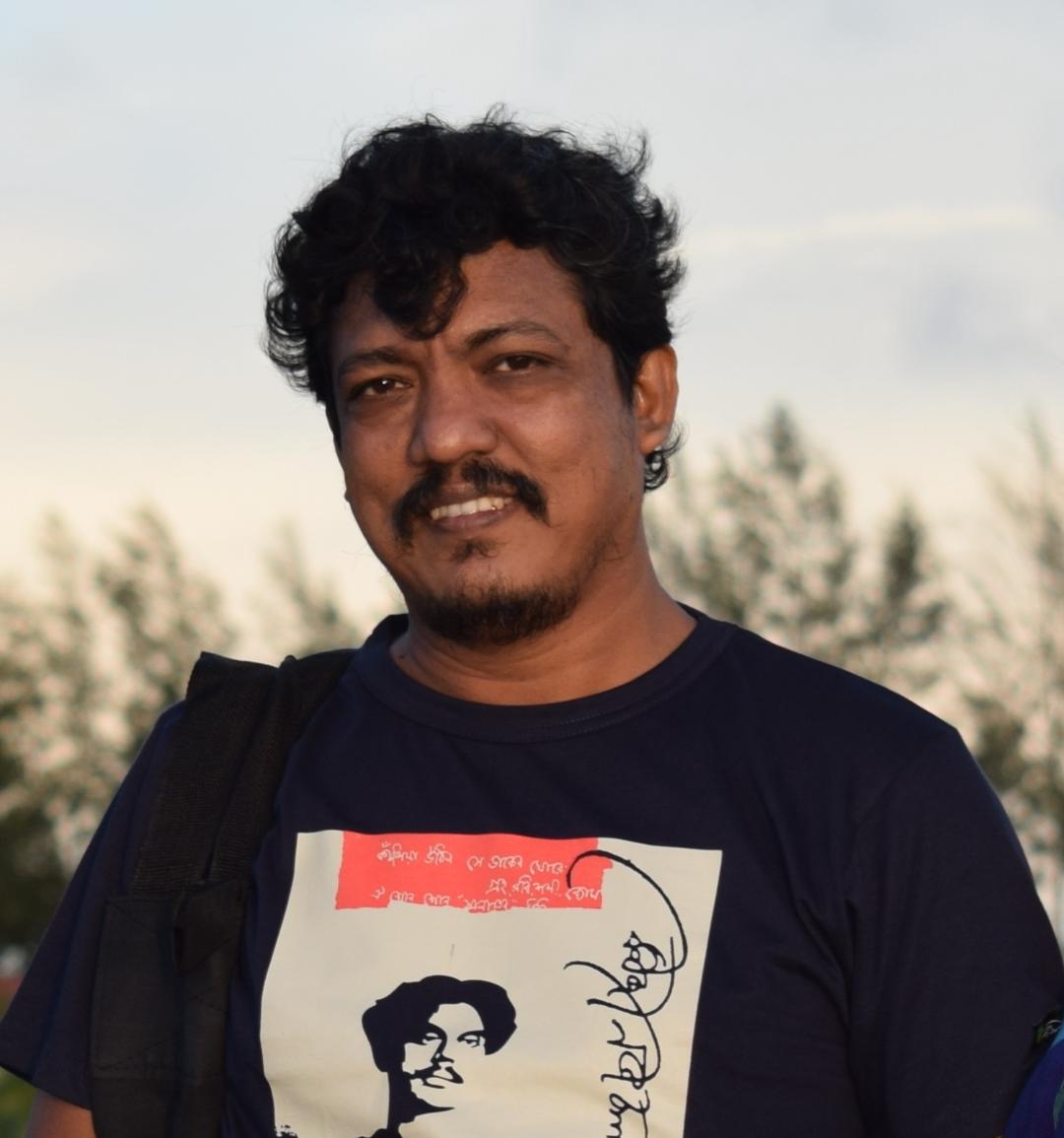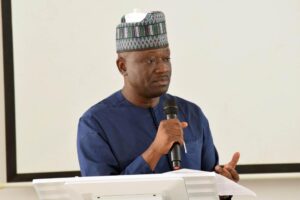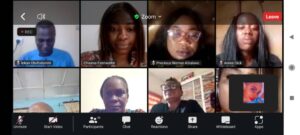Rafiqul Islam Montu, Coastal Journalism Specialist from Bangladesh is an accomplished award-winning journalist. In this interview with Media Career Development Network, he explains the concept of Coastal Journalism he initiated and its impact among other issues.
What was your journalism background before commencing the Costal Journalism initiative?
I am a coastal man. I was born in Barguna, a small coastal district in Bangladesh. My journalism started with coastal journalism. I have been writing news since I was in school. I was in local journalism at the district level for about 18 years. The next step is mainstream journalism in Dhaka, the capital of Bangladesh.
I have worked in Prothom Alo, the most widely circulated Bengali newspaper in Bangladesh. Other newspapers include Dainik Samakal, Dainik Kaler Kantho, Dainik Sangbad, Dainik Bhorer Kagoj, Dainik Manabjamin. Through these newspapers, I have done various kinds of work including political bit, parliament bit, election commission bit.
I have a different perception of mainstream journalism. I feel that the issues on the coast from where I started journalism are neglected by the mainstream news. I see that only when a cyclone hits, or when all else ends in a natural disaster, does the media’s eye go to the coast. Who will report before whom? The competition goes on.
But how unusual is the life of the people in the coastal region even in normal times? No one comes to see it. I left the political bit and went into field journalism. I saw that there are many reporters in Dhaka who can do political beat. No one is listening to the stories of the people of the coast. I should go there. And personally, I believe that I should not be in the profession of journalism unless I can do something exceptional. I don’t need to do what everyone else is doing.
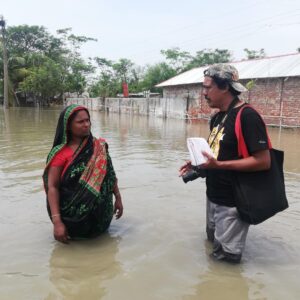
What is coastal journalism?
I think ‘coast’ must be understood before ‘coast journalism’ can be understood. Three elements are put forward in determining the definition of the coast. These are- 1) cyclonic winds, 2) tidal wave and 3) salinity effects. Where these three elements exist, it is the direct coast. Where at least two elements exist, it is an indirect coast. The coastal areas of Bangladesh have been identified in this way. This definition seems to be very close to the coast of other parts of the world. Because the image of the coast is almost the same.
Understanding the definition of ‘coastal’ will clarify the definition of ‘coastal journalism’. In a word, coastal journalism is a special kind of journalism for the coastal people. This kind of journalism raises the voices of the people of the coast. Helps in planning for solving the problems of the people of the coast. Helps establish justice for marginalized citizens. This kind of journalism opens the eyes of the policymakers of the government.
READ ALSO: BETWEEN MISSIONARY AND MERCENARY JOURNALISM
Why is coastal journalism necessary?
We have noticed that backward areas like coastal areas are drowning in neglect year after year. No one seeks out how marginalized people survive. Field level information does not reach the centre in that way. On the other hand, the information of the centre does not reach the field. As a result, the problems are not solved. In the same way, there are many potential issues in coastal areas. They do not come into focus. Coastal journalism is needed to bring out the voices of the people of the coast. Coastal journalism can solve coastal problems. Coastal journalism can establish human justice. Coastal journalism can raise the possibility.
Climate change is creating new issues for reporting in coastal areas around the world. Natural disasters are on the rise. As a result, people’s lifestyles are changing. In many places, normal life is becoming difficult. Displaced people are running from one place to another in groups. The profession is changing. It is time for these stories to be widely published in the media. But unfortunately true, the mainstream media has little interest in these marginal stories. The issue of coastal areas was discussed at the International Climate Conference. It is very important to have a proper role of media in keeping with this. In this context, coastal journalism is very important all over the world.
What are the issues coastal journalism should cover?
Coastal areas are a big field of news. You close your eyes and imagine the things on the coast. You see, there are thousands of issues in front of your eyes. Even if a journalist writes about the coast for the rest of his life, the issue will not end. As a result of climate change, new issues are being added to the coastal areas. On the other hand, the extent to which government services are reaching the people of the coast is also a big issue.
I can divide the coastal issues into several parts- 1) environment and climate change; 2) government services; 3) human crisis; 4) development and potential; 5) economic activities; 6) crime and corruption; 6) coastal communities; 6) Natural disasters. Numerous more issues can be extracted from these issues in bold, which can become the subject of great news.
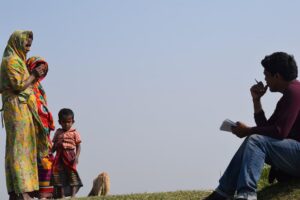
How can it benefit the communities and society in general?
We speak of establishing justice and rights. I am talking about establishing a society without discrimination. The free flow of information can play a particularly helpful role in these cases. There will be no real journalism if we do not talk about marginalized people. There will be no real development without marginalized people. Free flow of information will be ensured through coastal journalism. Through this, the real news of the people of the coast will reach the policymakers. If this trend continues, the common people and society of the coast will benefit.
What are the major issues and reports you have done?
The coastal region of Bangladesh consists of 19 districts. Of these, 16 districts are relatively risky. About 50 million people live in this region. It can be said that I have covered almost all the issues. However, the issues that I have covered more are natural disasters, climate change, environment, public service, children’s and women’s rights, land rights, fishermen’s rights, tribals, Sundarbans, potential, island life, etc. I have also written a series of reports on these issues.
What has been the feedback and acknowledgement for your work, including awards and opportunities?
I have received many national and international awards in recognition of my work. Of these, I have received UNICEF-Meena award three times, Dhaka Reporters Unity Best Reporting Award thrice and the PIB (Bangladesh Press Institute) A2I Award twice. I have received the Canadian Excellence in Journalism and the award from the Department of Disaster Management, Government of Bangladesh.
I am currently doing a Fellowship of Earth Journalism Network (EJN) / Internews. I have previously done fellowships from the Center for Sustainable Development (CFSD). I am a regular contributor to the international online news portal The ThirdPole and Gaon Connection.
I am very proud of all these acknowledgements for my report on the coastal area and the people of the coast.
What is your advice for journalists from coastal areas about taking up the challenge of covering the coasts in their countries?
In this type of challenging journalism, one’s willpower is the most important. Must have self-confidence. After mentally preparing, he will have to make other preparations. Coastal journalism must have the strength to work hard. Must have 16-18 hours of the continuous workforce. Must have the courage to stay and travel in disaster-prone areas. Must be in close contact with people. He must understand the geography of the coast. The entire coast should be searched round the clock. You have to think about the issues of report writing. Must be kept with the necessary materials.
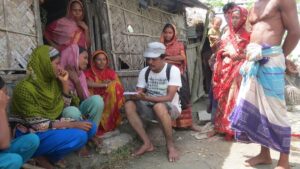
What skills and knowledge are required?
Any journalist who has no prior skills can work on coastal issues. But he has to study. It is necessary to have a clear idea about the geographical position of the coast. Coastal people need to know about occupations and livelihoods. It is important to keep in mind which times of the year there are more crises in the coastal areas. It is necessary to have an idea about the laws, policies, etc. of the government regarding the coast. We have to keep an eye on government development activities in the coastal areas.
What networks exist for interested journalists?
The only network of coastal journalists in Bangladesh. I found out that there is no such network anywhere else. Before Bangladesh, no one thought about coastal journalism separately. We have over 300 members in our network. I and members of my network are working.
Such a network should be in the coastal countries of the world. Not only that, but journalists from coastal countries should also work together. I dream that one day the International Coastal Journalism Conference will start from any country in the world.
Any other thing you think we should know?
One more thing needs to be said here, for the first time in Bangladesh, the celebration of ‘Coastal Day’ has started on my initiative. Nowhere else in the world has Coastal Day been celebrated before. I saw that despite having so many days, there is no day for the coast. I decided to make a proposal for Coastal Day. But the question is which day will be Coastal Day? Let’s find out the date of 12th November.
On this day in 1970, the deadly cyclone ‘Bhola Cyclone’ swept over the coast of Bangladesh. More than one million people lost their lives. It is the deadliest cyclone in the history of the world. So I propose this day as Coastal Day. At first, I started writing articles in the media about the proposal. Later, initiatives were taken to observe the day in all the districts and Upazilas of the coastal region. The day is celebrated on November 12 every year in at least 60-70 places in the coastal region. The people of the coastal region have accepted Coastal Day. However, no official recognition has been received yet. 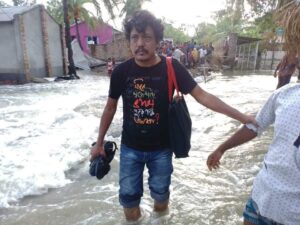
Coastal journalism will go a long way if Coastal Day gets official recognition or international recognition. Then on this day, the media will publish big reports on the coastal issue.
Overall, through my work, ‘coastal journalism’ has become widely known in Bangladesh. The news of the coastal region has increased a lot in the national and local media. The use of the word ‘coast’ has also increased exponentially.
Young journalists are showing interest in working on coastal issues. Many young journalists ask me for advice. I help them in all kinds of ways. Sometimes I take them to the field with me. My expectation is that this different kind of journalism will spread to the coastal countries and it will be recognized in the international arena.
I am very happy to hear the story of Media Career Development Network in Nigeria. Their interest in coastal journalism has inspired me. Hopefully, the young journalists of that country will play a leading role in coastal journalism. Thanks to the Media Career Development Network management for taking the interview.
